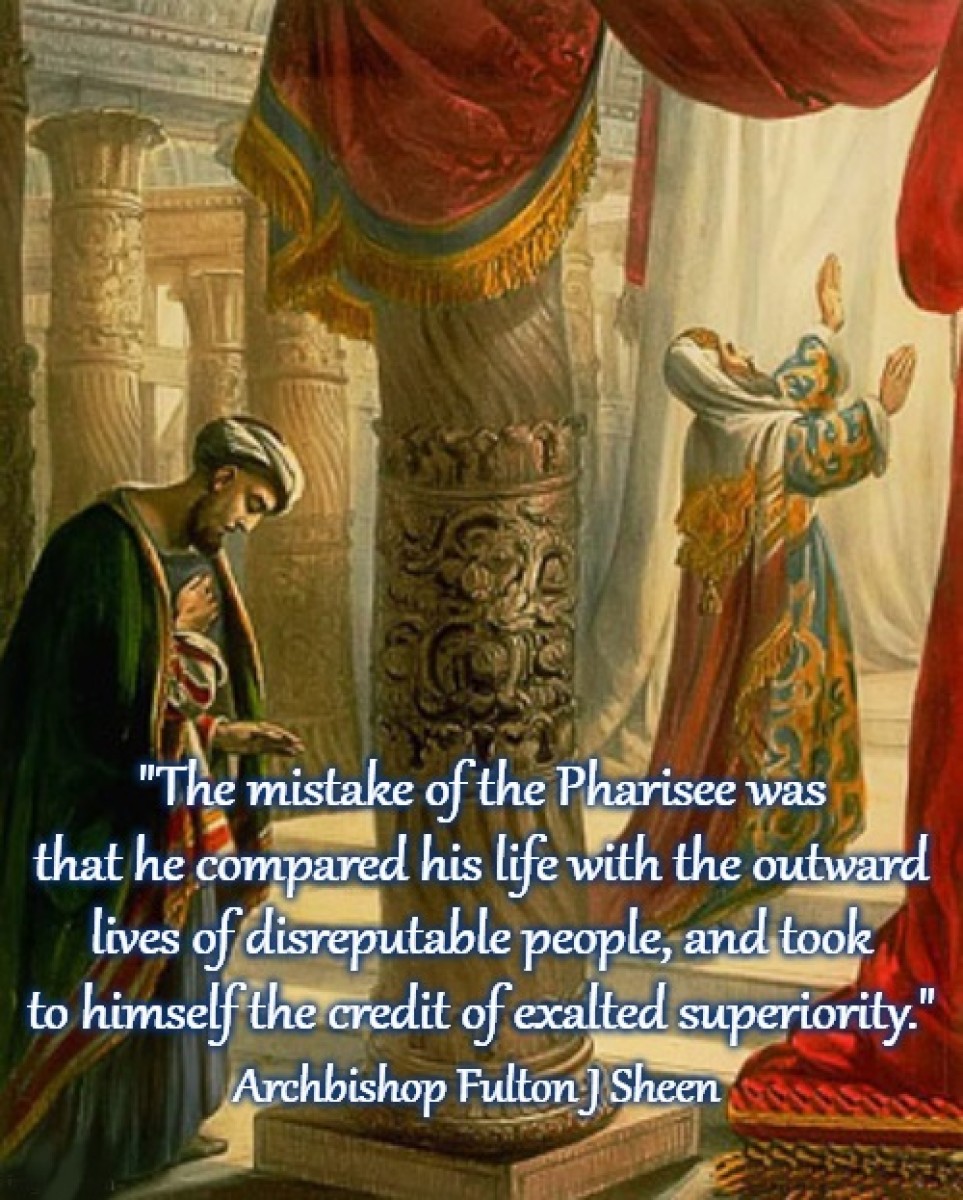30th Sunday in Ordinary Time (Year C) - 26 October 2025
26th October 2025

“God will not hear our prayers unless we acknowledge ourselves to be sinners. We do this when we ponder on our own sins alone, and not on those of our neighbour.” - St Moses the Ethiopian
A reflection on today's Gospel by the Venerable Archbishop Fulton J Sheen:
The heart that has no sin in it, unless it repents, constantly has its coming out in criticism and hatred of others. Those who do not believe in the virtues of others betray viciousness in the depths of their own hearts. Those who accuse others of being actuated by self-interest are themselves selfish. It is always the crooked politicians who disbelieve in the honesty of decent politicians; thieves do not believe in the existence of honesty, and worldlings call religious people hypocrites because they know that if they expressed a warm regard for the things of God, they would be hypocrites.
What sin is to a soul, that an infection is to a body. Bad blood comes out in boils; bad morals come out in discontent, anxiety, slander and a thousand other signs of mental maladjustment.
It does no good to deny our moral lapses or to try to cover them up, as most people are trying to do today in busy-bodyism which sometimes goes by the name of ‘doing something for society.' Our Lord told the story of two men who had hidden guilt; one the Pharisee who went to the front of the Temple and told God all he was doing to ‘make the world a better place to live in,’ how he helped the poor, rendered service to the government, and avoided all those public sins of which others are so often guilty. The mistake of the Pharisee was that he compared his life with the outward lives of disreputable people, and took to himself the credit of exalted superiority. It may be that the reason people like to hear and read of scandals is because they make them feel better than others. Hence the prayer: ‘I thank Thee, Lord, that I am not like the rest of men.’ There is a thrusting forward of the ego to which all else is made subservient, even prayer and God.
When Philip, King of Macedonia, laid siege to the fair city of Samos, he told the citizens that he came a-wooing it; but the orator of their country replied that it was not the fashion of his country to go a-wooing with fife and drum. So the Pharisee goes to the Temple a-wooing God with the exploits of his social action. It was his way of telling God that he had no need of Him, that he had no guilt to be forgiven, and no sin to be pardoned.
The Publican in the back of the Temple prayed: ‘Lord, be merciful to me a sinner.’ Against those who would say that redemption begins with fixation on guilt, it is here revealed that the true penitential spirit is born not so much by looking at our wickedness as to the Goodness of God; he who is sick and fixes his gaze on his sores rather than on the Physician is doomed to despair. It was not his sin that gave him the right to ask for mercy, but rather the Goodness of God. There is a balance between our misery and God’s mercy. If we concentrate on the Mercy of God, and debase not ourselves, we are apt to fall into presumption; if we debase ourselves and concentrate on our misery and forget the Mercy of God we are apt to fall into despair. A God high in the heavens and the soul in the dust, such is the real combination that leads to newness of life. The higher a steeple rises in the heavens the smaller it becomes; the closer a saint gets to God the less he is in his own eyes. As John the Baptist said: ‘I must decrease, He must increase.’ The worst thing in the world is not sin; the worst thing is to deny that we have done wrong.
The Pharisee in front of the Temple was typical of many of the modern psychological theories; it was based upon the idea of his own inner goodness. Many seem to be crying for stronger and stronger wine, louder and louder music, in order to drown out the voice of conscience that would make them Publicans humbly beating their breasts and asking pardon of God.
But when there is no longer a belief in the Goodness of God and the evil in our lives, the heart begins to sour. Whenever an age or a people become cynical about religion, there is hidden somewhere in souls a bitterness. Bitterness is an incentive to self-destruction. The man who is conscious of having done wrong beats his breast as did the Publican as if to pound himself in suicide, for bitterness does end in self-destruction.
There is plenty of knowledge about the universe, but there is little self-knowledge. People are frightened to look inside themselves. There are so many unwashed dishes in the sink of their consciences; their souls look like unmade beds. But if only once they would be humble enough to look inside and admit the mess, then look up to the Good and Merciful God like the Publican, they would see then how God ‘can write straight with our crooked lines.’
(Thoughts for Daily Living)


